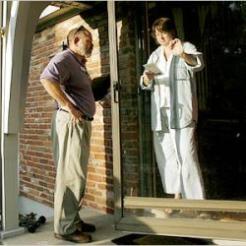The PFRA has encouraged its members to call for changes to a draft Institute Code of Practice on house-to-house collections, warning that the code leaves charities subject to local authorities’ judgements on what constitutes effective and efficient fundraising.
The Institute’s revision of its code on house-to-house collections – which covers cash, direct debits and goods – coincides with the National Association of Licensing Enforcement Officers (NALEO), those responsible for approving fundraising licence applications at local level, creating guidance for its own members on when to approve or reject an application for house-to-house collections.
Civil Society has obtained a copy of a briefing paper the PFRA has distributed among members, urging them to participate in the Institute’s code consultation and demand changes to the draft.
The PFRA is concerned about a section of the Institute’s proposed code which implies that fundraisers should defer to NALEO guidance to local licensing authorities on what kind of return on investment is acceptable on door-to-door collections.
The passage, in part three of the draft Institute code, reads: “Fundraising organisations should be aware of guidance available to licensing authorities on appropriate returns from house-to-house collections and may wish to contact the local licensing department as appropriate.”
What concerns the PFRA, and has prompted it to call on its members to submit responses to the consultation, is its understanding that NALEO is looking at telling its own members to turn down fundraising licences for campaigns which involve “excessive costs” or “negligible returns”, and is believed to be considering the idea that any fundraising collections application which brings the charity any less than 75p in the pound, should be rejected.
Wider implications
The PFRA warns in its briefing that the impact of such guidance from NALEO could have wider impact than on just house-to-house clothing collections. “By seeking to address the issue via statute rather than voluntary self-regulation/best practice (the Code), NALEO and licensing authorities are in danger of seriously damaging the house-to-house solicitation of direct debits,” the briefing paper reads.
The Institute is essentially directing fundraisers to the NALEO guidance, argues the PFRA. This means the Institute may risk “handing control of defining best practice to an external third party over which it has little influence and cannot call to account”.
“It is the firm belief of the PFRA that while others may seek to produce guidelines of their own relating to various charitable collecting activities…the IoF should not in effect endorse these, regardless of their content.”
NALEO representatives sat on the working party that drafted the revised Institute code.
The PFRA argues that the deference to local licensing authorities runs “entirely contrary” to the yet-to-be-enacted part three of the 2006 Charities Act and could have wider implications for fundraising. It says this could mean the sector surrenders its ability to “argue effectively about fundraising as investment, ratios, impacts by reducing the issue to an overly simplistic and arbitrary equation”.
Institute 'aware' of PFRA position
Louise Richards, director of policy and campaigns at the Institute, told Civil Society that the organisation has been aware of the PFRA’s position. “Their comments will be considered by the Standards Committee in January,” she said.
The consultation period for the code on house-to-house collections closes on 21 December.









